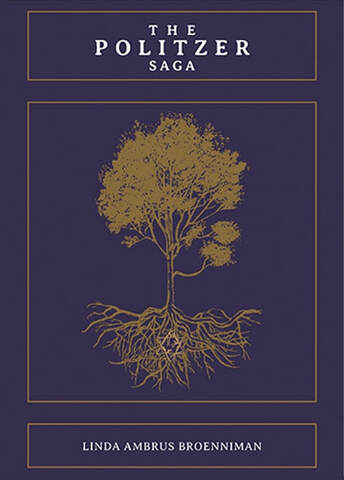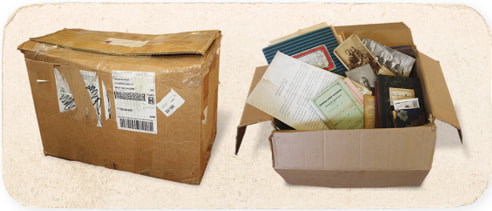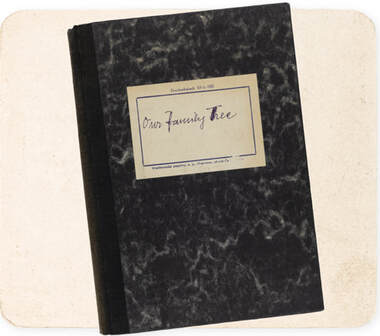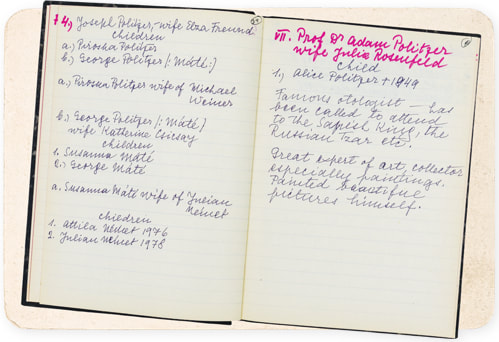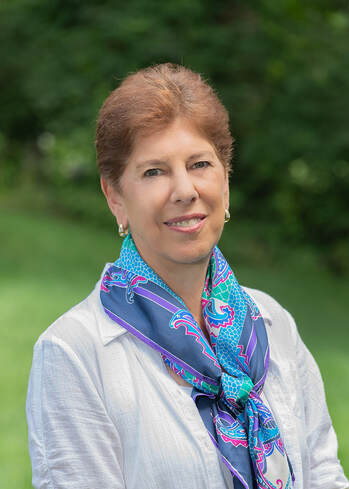Play & Book Excerpts
The Politzer Saga
(Bethesda Communications Group)
© Linda Ambrus Broenniman
Chapter 1: Family Secrets
Longing for the Truth
I am the middle child of seven American children born to Hungarian physicians, Clara and Julian Ambrus, who survived World War II and began a new life in the US during the 1950s. We were raised Catholic in Buffalo, New York and attended church regularly with our parents. It was a happy childhood. A charmed life. But there were secrets.
In my late twenties, (in the early 1980s), the godmother to my oldest sister revealed, through a slip of the tongue, that my father was Jewish. I began to wonder what else I might not know. Not long after that revelation, in 1984 and 1990, I learned more about my parents’ past when I traveled to Budapest with them. Yet larger truths remained hidden.
One such truth emerged in 2006: We received news that the Israeli Government was honoring my Catholic mother as Righteous Among the Nations, an honor recognizing non-Jews “who acted according to the noblest principles of humanity by risking their lives to save Jews during the Holocaust.” Her name is inscribed on the wall at Yad Vashem (the World Holocaust Remembrance Center in Israel) along with more famous names, such as Oskar Schindler, Raoul Wallenberg, and Irena Sandler. My mother risked her life to save Jews, my father and my grandmother among them. I was so proud, but also stunned to realize how little I knew of my parents’ true history. And that I knew nothing about my father’s Jewish family. My Jewish family. Or about my own grandmother – my father’s mother who escaped Hungary during the 1956 revolution and came to Buffalo to live with and help care for us, her grandchildren. She was big-hearted and spoiled us. Like my father, she was an expert storyteller, but she never revealed anything about the true history of her life.
After the ceremony that honored my mother, I broke the unwritten rule that governed discourse at our house: no questions about the past. My father continued to deflect until his death, and my mother was in the later stages of Alzheimer’s. On one occasion, though, my mother’s answer surprised me. She responded that a box with documents held answers. My quest for the truth about my family began at that moment.
Truth in the Ashes
I was amazed she remembered this detail when she remembered so little. But when I could not find such a box anywhere, I began to wonder if the box had existed only in her imagination.
In February 2011 my parents’ home caught fire. My father survived with minor burns. My mother, after 12 excruciating days in coma, succumbed. I presumed the box she remembered had burned, if it ever existed.
Five years after the fire, my sister Madeline called to say she had found a box among the items rescued from the fire. She was sending it out the next day.
It arrived looking like any U-Haul moving box. I opened it nervously. Its musty odor reminded me of an attic closed off to fresh air for decades. It was filled with dog-eared files stuffed with papers and manila envelopes of photos. The documents were mostly in Hungarian or German. Most were dated from the 1930s and 1940s; some photos, postcards, and documents bore dates from the late 1800s and early 1900s. Amazingly, they had survived World War I, World War II, the Hungarian Revolution of 1956, and the fire in my parents’ home.
I am the middle child of seven American children born to Hungarian physicians, Clara and Julian Ambrus, who survived World War II and began a new life in the US during the 1950s. We were raised Catholic in Buffalo, New York and attended church regularly with our parents. It was a happy childhood. A charmed life. But there were secrets.
In my late twenties, (in the early 1980s), the godmother to my oldest sister revealed, through a slip of the tongue, that my father was Jewish. I began to wonder what else I might not know. Not long after that revelation, in 1984 and 1990, I learned more about my parents’ past when I traveled to Budapest with them. Yet larger truths remained hidden.
One such truth emerged in 2006: We received news that the Israeli Government was honoring my Catholic mother as Righteous Among the Nations, an honor recognizing non-Jews “who acted according to the noblest principles of humanity by risking their lives to save Jews during the Holocaust.” Her name is inscribed on the wall at Yad Vashem (the World Holocaust Remembrance Center in Israel) along with more famous names, such as Oskar Schindler, Raoul Wallenberg, and Irena Sandler. My mother risked her life to save Jews, my father and my grandmother among them. I was so proud, but also stunned to realize how little I knew of my parents’ true history. And that I knew nothing about my father’s Jewish family. My Jewish family. Or about my own grandmother – my father’s mother who escaped Hungary during the 1956 revolution and came to Buffalo to live with and help care for us, her grandchildren. She was big-hearted and spoiled us. Like my father, she was an expert storyteller, but she never revealed anything about the true history of her life.
After the ceremony that honored my mother, I broke the unwritten rule that governed discourse at our house: no questions about the past. My father continued to deflect until his death, and my mother was in the later stages of Alzheimer’s. On one occasion, though, my mother’s answer surprised me. She responded that a box with documents held answers. My quest for the truth about my family began at that moment.
Truth in the Ashes
I was amazed she remembered this detail when she remembered so little. But when I could not find such a box anywhere, I began to wonder if the box had existed only in her imagination.
In February 2011 my parents’ home caught fire. My father survived with minor burns. My mother, after 12 excruciating days in coma, succumbed. I presumed the box she remembered had burned, if it ever existed.
Five years after the fire, my sister Madeline called to say she had found a box among the items rescued from the fire. She was sending it out the next day.
It arrived looking like any U-Haul moving box. I opened it nervously. Its musty odor reminded me of an attic closed off to fresh air for decades. It was filled with dog-eared files stuffed with papers and manila envelopes of photos. The documents were mostly in Hungarian or German. Most were dated from the 1930s and 1940s; some photos, postcards, and documents bore dates from the late 1800s and early 1900s. Amazingly, they had survived World War I, World War II, the Hungarian Revolution of 1956, and the fire in my parents’ home.
Buried deep within the box I found a black marbled composition book, bearing the words “Our Family Tree” on the cover. No author was identified. Much to my relief, it was written in English. Ábrahám Politzer (1797- 1854) began the list of names. The irony of his name did not escape me - Abraham was the first patriarch in the Old Testament, progenitor of the Jewish nation. I had found our own Ábrahám, a Jewish patriarch in my family. Names, dates, and relationships were listed. Occasionally a brief description was included. It identified Politzer descendants through six generations, including me and my six siblings. I wondered who had written it as I read and leafed through the handwritten book.
I learned that in the mid 1800s Ábrahám and his wife Karoline raised a large family of fourteen children. Many more relatives followed. By the time I finished putting them into my newly purchased ancestry software (Legacy and ancestry.com), I had discovered over 300 names. The descriptions, though meager, made them come to life for me, but also left me yearning to learn more.
I learned that in the mid 1800s Ábrahám and his wife Karoline raised a large family of fourteen children. Many more relatives followed. By the time I finished putting them into my newly purchased ancestry software (Legacy and ancestry.com), I had discovered over 300 names. The descriptions, though meager, made them come to life for me, but also left me yearning to learn more.
I was almost certain that Gábor Virány, my father’s cousin had compiled the book. Gábor had a remarkable memory and was fluent in English. Growing up in Hungary, my father and Gábor, both only children, were like brothers. They lived in separate apartments in the same building on Teréz körút (körút means boulevard) in Budapest.
Gábor was autistic. He remembered everything: names, relationships, birthdates, marriage dates. He remembered dates of any significance and those that were not. My parents and I visited him in Budapest in 1984 and 1990. Asked about an event like a concert from decades ago, he recounted the weather, food served, music played, and what guests wore. As I later learned, when Gábor died in 2005, his niece sent his belongings to my father. The box my sister sent included some of the items Gábor had kept throughout his life. Without it, I could not have pieced together our family history.
History: Lost and Found
The contents of the box would bring me closer to the truth about my family, but the path to discovery is rarely a straight line.
Gábor was autistic. He remembered everything: names, relationships, birthdates, marriage dates. He remembered dates of any significance and those that were not. My parents and I visited him in Budapest in 1984 and 1990. Asked about an event like a concert from decades ago, he recounted the weather, food served, music played, and what guests wore. As I later learned, when Gábor died in 2005, his niece sent his belongings to my father. The box my sister sent included some of the items Gábor had kept throughout his life. Without it, I could not have pieced together our family history.
History: Lost and Found
The contents of the box would bring me closer to the truth about my family, but the path to discovery is rarely a straight line.
|
Linda Ambrus Broenniman grew up in Buffalo, New York. She is the middle child of seven born to Hungarian physicians who survived World War II and started their new life in the U.S. in 1949.
Linda graduated from Swarthmore College with a B.A. in psychology. Several years after getting her MBA from Carnegie Mellon, she left mainstream corporate America to follow her path as an entrepreneur, building companies in technology and biotech. She let her passion for uncovering hidden potential in unexpected places guide her, and she allowed this passion to fuel her search for her hidden family. Linda lives in Great Falls, Virginia with her husband of 28 years and their dog, Juno. UPCOMING EVENT:
Glen Echo Town Hall
Glen Echo, MD January 7 ~ 5:00 p.m. Book Discussion/Author Meet & Greet |
Photo Courtesy: Linda Ambrus Broenniman
|

